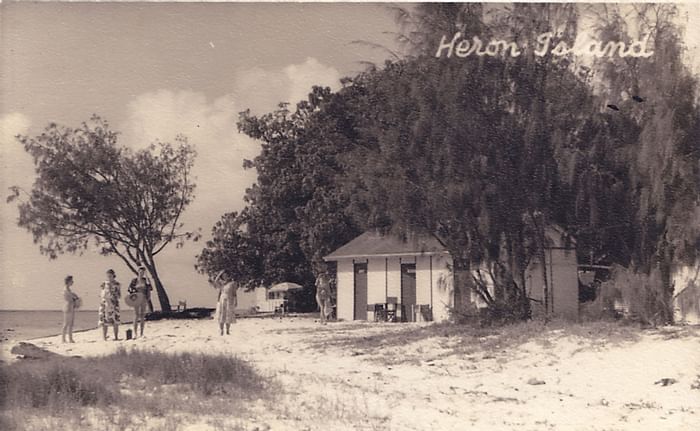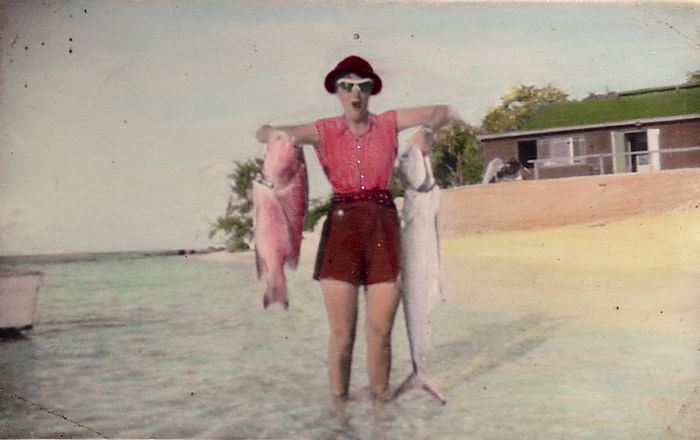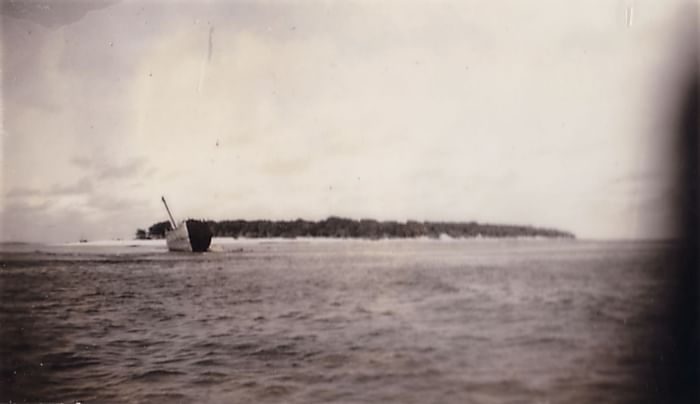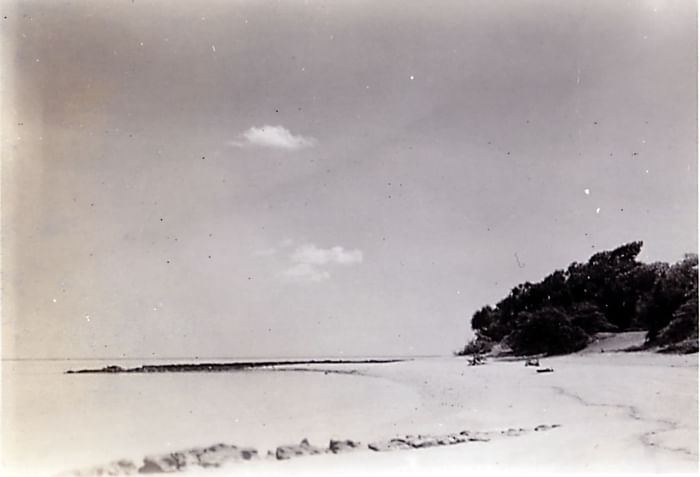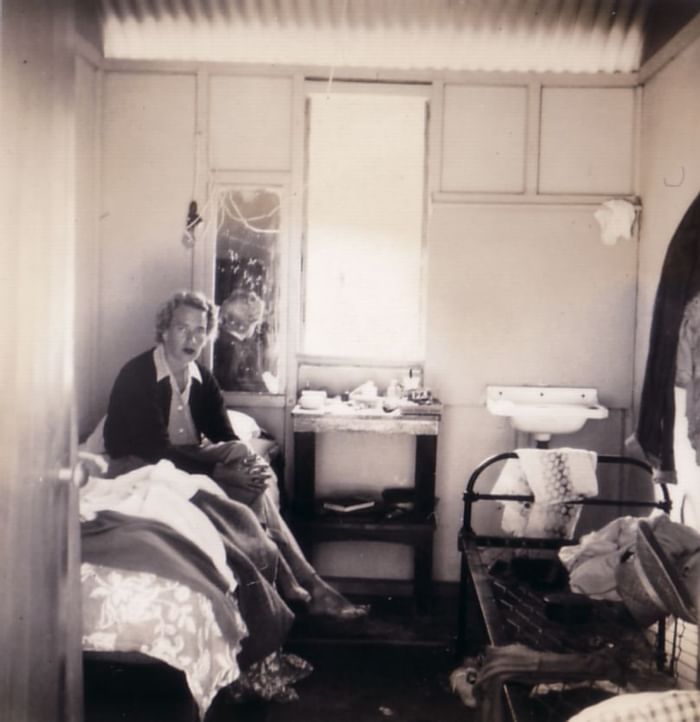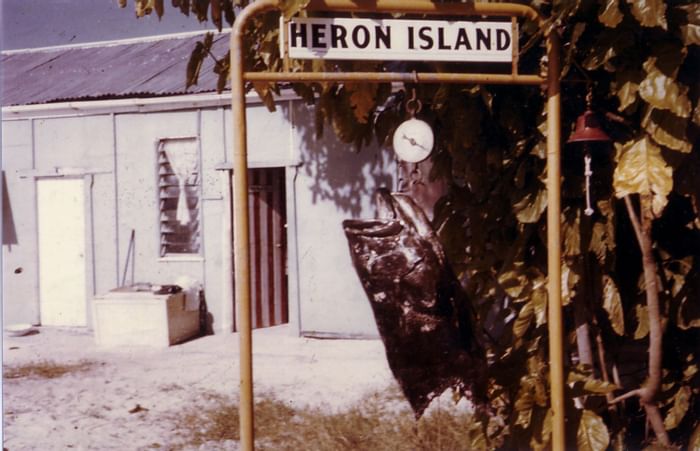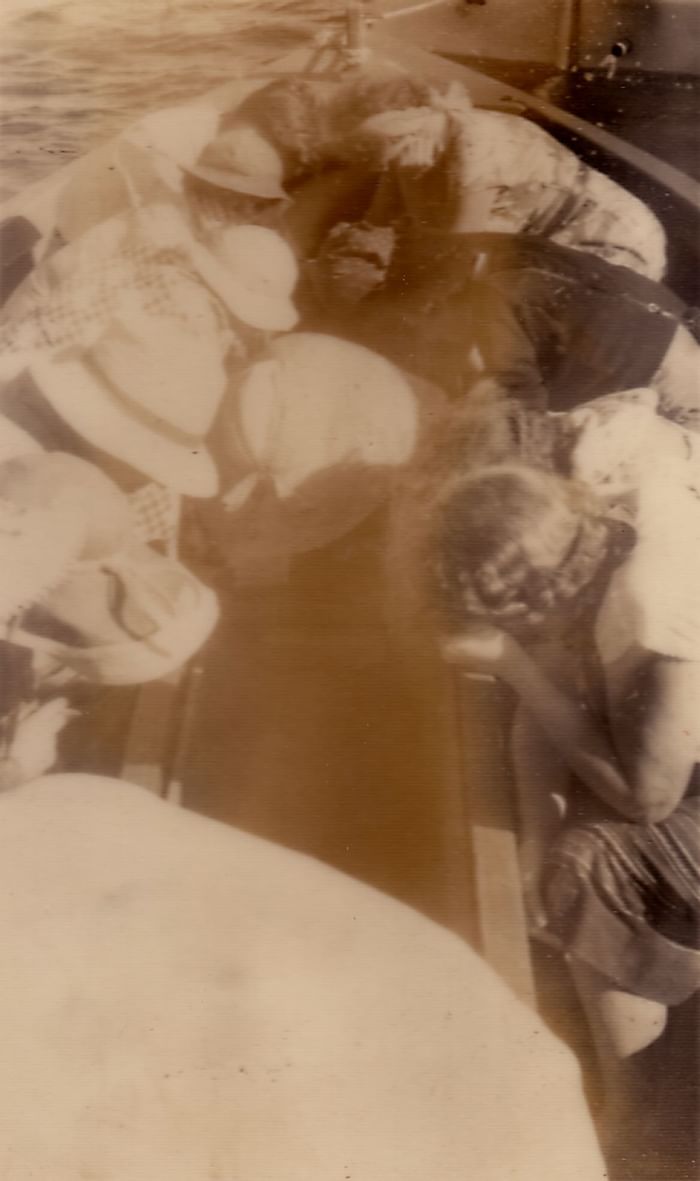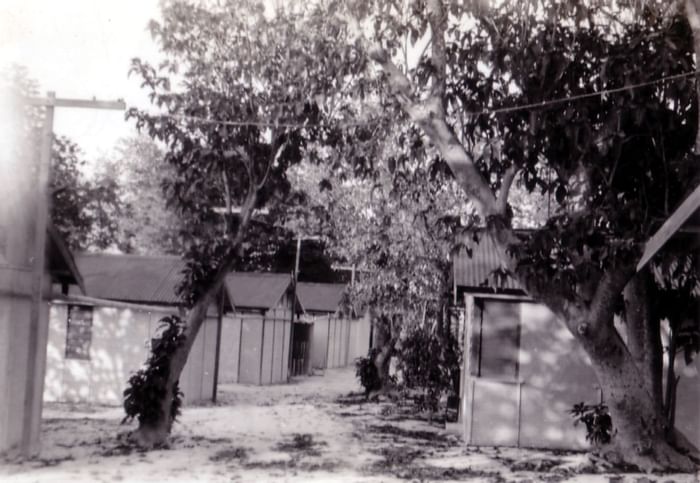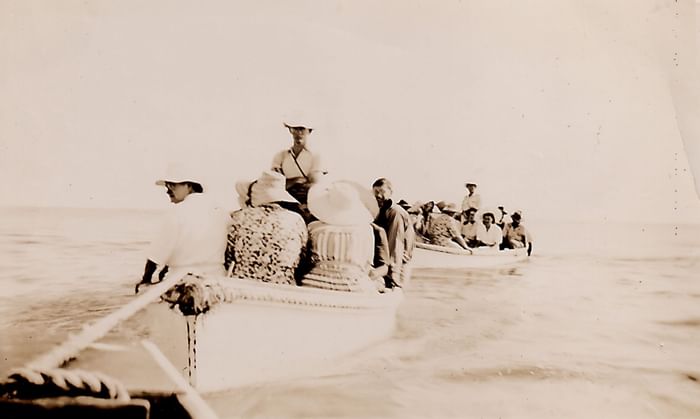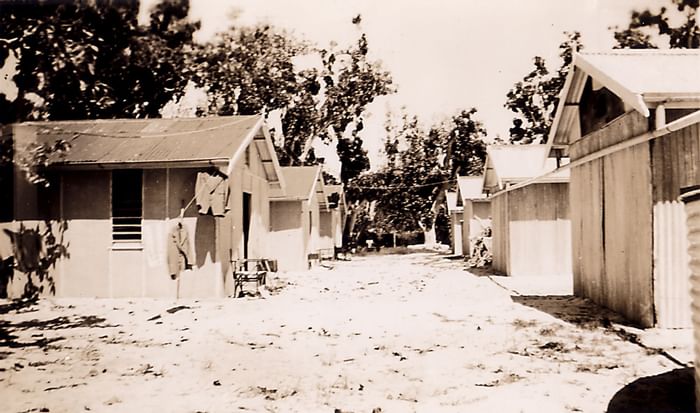1920s — Turtle Cannery
Bird-watchers and guano miners visited the island sporadically, but development didn’t occur until Mr. L. Marsh applied for a special lease over the island in 1925 to establish a turtle soup factory. However, his company, the Australian Turtle Company, folded and the lease was taken over by Percy Friend. Friend’s time running the turtle soup factory was also brief as, not surprisingly, turtle numbers dropped dramatically and the business became unviable. In the 1930s, the lease was taken over by Captain Christian Poulsen who saw the island’s potential as a holiday destination. Building the hotel where it still stands today, Poulsen organised the ferrying of tourists first by boat, then with ex-RAAF seaplanes.
1940s and 50s — National Park
In 1943 Poulsen noticed a damaged naval vessel abandoned on a beach near Gladstone. He decided it would make a terrific breakwater and bought the ship (circa 1884) for 10 pounds. The wreck is one of the first things visitors to the island see and it’s a popular roost for one of the island’s visiting birds, the large Brown Booby. Heron Island was declared a national park in 1943. Five years later Poulsen went missing in nearby waters. In 1951, the Heron Island Research Station was built. It is still operating successfully in conjunction with the University of Queensland.
Postcards and photos of Heron Island in the 1950s show visitors displaying their catches of the day, clasping big cowries and clams, and riding sea turtles. Happily for the turtles, riding them became prohibited in the 1960s. Today, many visitors come specifically to see the majestic turtles laying their eggs in the sand, all the while marvelling at the fact that each turtle they see has returned to lay her eggs where she herself hatched.
1960s to the Present — Eco Paradise
The late 1960s saw a harbour carved out, and in 1987 the jetty, where people now arrive by launch, was built. Since the 1970s, Heron Island Resort has remained a unique destination on the Great Barrier Reef, offering the eco-minded traveller an opportunity to experience nature in a relaxing and comfortable setting.
Thank you to our wonderful past guests and their families, for sharing some of your holiday memories from when Heron Island first began welcoming visitors.
Heron Island Resort respectfully acknowledges the Traditional Custodians of the Country on which we operate, the Bailai, Gooreng Gooreng, Gurang, and Taribelang Bunda peoples. We pay our respects to Elders past, present, and emerging. And extend that respect to all First Nations peoples.
